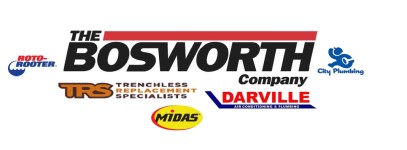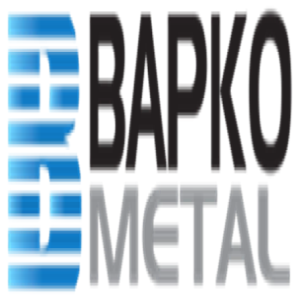Title Page
-
Site conducted
-
Conducted on
-
Prepared by
-
Location
GENERAL WORKING CONDITIONS
-
Are all work areas clean, sanitary and orderly?
-
Is combustible scrap, debris, and waste stored safely and removed from the worksite promply?
-
Are the minimum number of toilets and washing facilities provided and maintained in a clean and sanitary fashion?
-
Are all work areas adequately illuminated?
SHEET METAL MACHINES
-
Have all operators been task trained on the machine they are operating?
-
Are all machines guarded and protecting the operator from pinch points, nip points, blades, gears, and belts?
-
Are all guards functioning and in good condition?
-
Are all machines up to date with maintenance (oiling, greasing, fluid levels, cleanliness)?
-
When was maintenance performed?
-
Are emergency stops working properly?
-
Are operating procedures posted at each machine?
-
Is there adequate work space around the machines?
-
Is there a clear travel path around machines big enough for carts and materials to travel?
-
Are grinders, saws, and similar equipment provided with (and used) appropriate safety guards?
-
Are all cord-connected, electrically operated tools and equipment effectively grounded or of the approved double insulated type?
-
Are pneumatic and hydraulic hoses checked regularly for deterioration or damage?
FIRE PREVENTION/PROTECTION
-
Is there an inspected fire extinguisher, within 50 feet of the work area?
-
Are gas cylinders secured from falling and capped when not in use?
-
Are emergency exits free of obstructions and marked?
-
Are hot work areas free from flammables, combustibles, and aerosols?
-
Are egress routes at least 28" wide and free of obstructions?
-
Are employees periodically instructed in the use of fire extinguishers and fire protection procedures?
-
Are flammable liquid containers clearly identified?
-
Are flammable liquid containers properly stored and kept at least 35 ft from any spark producing, open flames, or excessive heat sources?
PERSONAL PROTECTIVE EQUIPMENT
-
Can the use of PPE be eliminated by engineered precautions?
-
What are the recommended engineering controls?
-
Is the appropriate hand protection being worn?
- Kevlar
- Leather
- Welding
- Heat Resistant
- Latex
- Chemical Gloves
- Cotton\Nitrile
-
Is the appropriate eye protection being worn when needed?
-
Are protective goggles or face shields provided and worn where there is any danger of flying particles or corrosive materials?
-
Is the appropriate hearing protection being worn when needed?
-
Is the appropriate footwear being worn?
MATERIAL HANDLING
-
Are carts and other material handling equipment in good condition?
-
Are loads limited to 50 pounds? If not, are two or more people making the lift or equipment when possible?
-
Check Forklift
-
Make:
-
Model:
-
Load Capacity Rating:
-
Serial Number:
-
Hours?
-
Date of last maintenance
-
Attachment?
-
What type?
-
Load capacity rating:
-
Check all that apply:
-
Certified Operator
-
Brakes
-
Lights
-
Pre-Inspection
-
Seat Belt
-
Fire Extinguisher
-
Warning Devices (i.e., back-up alarm)
-
Horn
HAND TOOLS AND EQUIPMENT
-
Are all tools and equipment (both company and employee-owned) used at the workplace in good condition?
-
Are hand tools, such as chisels, punches, etc., which develop mushroomed heads during use, reconditioned or replaced as necessary?
-
Are appropriate handles used on files and similar tools?
-
Are appropriate safety glasses, face shields, etc., utilized while using hand tools or equipment that might produce flying materials or be subject to breakage?
-
Are tool cutting edges kept sharp so the tool will move smoothly without binding or skipping?
-
Are tools in good condition and free of cracks, dents, and alterations?
POWER TOOLS AND EQUIPMENT
-
Are grinders, saws, and similar equipment provided with (and used) appropriate safety guards?
-
Are all cord-connected, electrically operated tools and equipment effectively grounded or of the approved double insulated type?
-
Are pneumatic and hydraulic hoses checked regularly for deterioration or damage?
-
Welding/cutting equipment inspected and in good condition?
-
Are tools stored in designated area when not in use?
HOUSEKEEPING
-
Work area free of trip hazards and swept free of debris?
-
Are garbage bins available and emptied, when needed?
-
Are oily/greasy rags properly disposed of in metal containers with lids?
-
Are ventilation systems functioning properly to dissipate fumes?
-
Are restrooms clean and sanitary?
ELECTRICAL
-
Are ground-fault circuit interrupters installed on each temporary 15 or 20 amp, 120 volt AC circuit locations where construction, demolition, modifications, alterations, or excavations are being performed?
-
Do extension cords have a grounding conductor (i.e., ground prong)?
-
Are extension cords at least 12 gauge?
-
Are flexible cords and cables free of splices or taps?
-
Are all unused openings (including conduit knockouts) in electrical enclosures and fittings closed with appropriate covers, plugs, or plates?
-
Are all energized parts of electrical circuits and equipment guarded against accidental contact by approved cabinets or enclosures?
-
Are extension cords being used in the place of permanent wiring?
-
Are extension cords, wiring, or conduit creating a trip hazard?
WELDING, CUTTING, AND BRAZING
-
Area inspected for fire hazards?
-
Screens and shields in place?
-
Proper ventilation?
-
Are oxygen and acetylene stored properly?
-
Are cylinders not in use secured with caps in place?
-
Are valves shut-off and regulators backed off each night?
-
Flashback arresters placed on hoses (O2 and fuel gas)?
-
Are welding leads in good repair and no cuts, splices, or damage within 10 ft of the electrode holder (stinger)?
COMMENTS:
-
Additional comments, concerns, or details
OVERALL GRADING
-
ACCEPTABLE: Jobsites which have no serious violations of federal requirements, or safety policies and have recognizable hazards controlled at the time of the inspection.<br><br> NEEDS IMPROVEMENT: Jobsites in which violations occurred which may be serious in nature but the inspector does not believe them to be done intentionally or egregiously.<br><br> UNACCEPTABLE: Jobs in which egregious safety violations exist and are to believe to have been known by those involved.
SIGNATURES
-
Sheet Metal Representative/Supervisor:
-
Auditor/Inspector:











